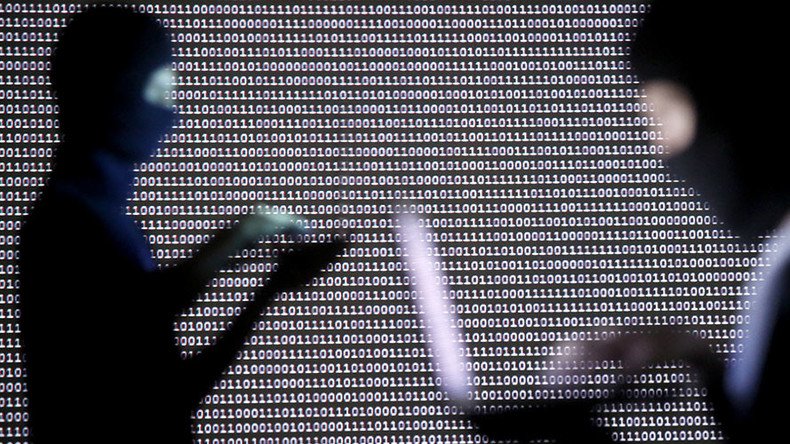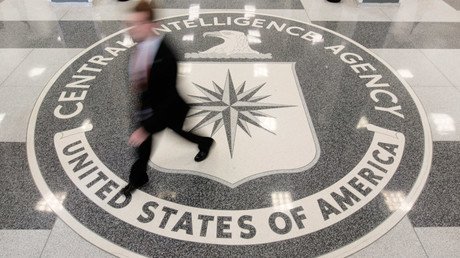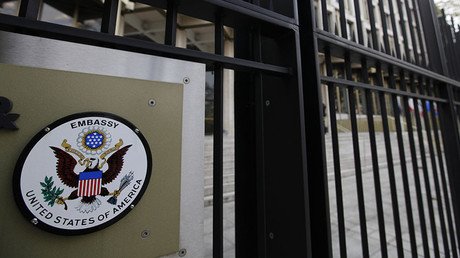FBI stepping up search for evidence to indict Russian hackers – reports

The FBI is boosting its efforts to uncover evidence that would allow the Justice Department to launch a criminal case against Russian hackers allegedly trying to meddle with the upcoming US presidential election, Reuters reports citing officials.
Washington sees legal action as the best response to increasing attempts to hack US political parties and political figures, which Washington believes were carried out by Russia.
"Doing nothing is not an option, because that would telegraph weakness and just encourage the Russians to do more meddling, but retaliating in kind carries substantial risks," an unnamed official in the US administration told Reuters.
White House spokesman Josh Earnest confirmed Thursday that gathering evidence would be no easy task for the FBI.
“We're in unexplored territory here, and the president is quite interested in trying to establish international norms," Earnest said.
“I'll let the FBI speak to what evidence they have amassed, but I think they're also cognizant of the fact that as soon as they make a declaration like that, most people are going to understandably be interested in seeing that evidence. And some of that evidence may not be something we want to show,” he said.
Moscow has repeatedly denied its involvement in the hacks, saying that it never sponsored or even encouraged any cyberattacks in the US.
“We certainly don’t do such things on the state level,” Vladimir Putin told Bloomberg News editor-in-chief John Micklethwait in early September.
But many in the US Senate remain unconvinced, as they blame Russia for hacking the Democratic National Committee (DNC) in July and passing the documents to WikiLeaks.
Some 20,000 released emails suggested that the Democratic Party leadership colluded to have Clinton rather than her principal competitor, Bernie Sanders, chosen as the party’s presidential nominee.
The lawmakers have been criticizing the Obama administration for weak response to what they called attempts by Moscow to influence and discredit the US presidential elections on November 8.
READ MORE: 'Russia hacked RNC': Republican lawmaker ‘misspoke’ on CNN
Democratic Senator Jeanne Shaheen addressed the Senate Foreign Relations Committee on Thursday, demanding a hearing to investigate whether Russia "is employing the tactics it has long used to influence elections in places like Ukraine and Georgia, this time in the US."
On Wednesday, FBI Director James Comey hinted that there are other ways in which the US can respond to alleged Russian cyberattacks. But he refrained from naming any of them.
"Just because you can't see something doesn't mean we're not trying to change behavior," Comey said at the Center for International and Strategic Studies.
Outing Russian hackers and toughening economic sanctions against Moscow are among the options the US may use to retaliate, said Richard Clarke, a top security official under George H.W. Bush, Bill Clinton and George W. Bush.
US officials told Reuters that it is believed Russia’s Main Intelligence Directorate (GRU) and Federal Security Service (FSB) are responsible for the hacks in America.
"They have decided that hacking and publicly revealing embarrassing things about other nations' politicians and organizations is now openly something that the Russian government does, and they don't care we know," Clarke said.
"They are going to be blamed anyway. Why go through the silliness of denying it?" he added.
According to the US intelligence and law enforcement sources, the Russian authorities have organized a sort of competition between GRU and FSB, to see which agency could obtain the most damaging information via hacks.
"Putin's real objective here, the best we can tell at this point, is not simply to promote one candidate or another or to throw the election, but to discredit the very concept of Western democracy," US intelligence official told Reuters.
The Kremlin previously dismissed the US accusations that Russia was behind hacks in the country as “quite absurd,” with presidential spokesman Dmitry Peskov pointing out what he called the “American style” of casting blame first, then investigating afterward.
“We in Russia are used to investigating first, before accusing anyone of anything. We believe it is more logical and more correct,” Peskov said.
The spokesman expressed the opinion that such statements were nothing but "typical pre-election rhetoric.”
READ MORE: Putin on DNC hack: Let’s talk content, not hackers’ identity
In his interview with RT, Brian Becker of the Answer Coalition stressed that despite all the harsh words the US side has so far failed to provide any proof of Russia's involvement in the hacks.
"There is no presented evidence by the US government. It refuses to present evidence, it refuses to affirm that there is evidence that Russia’s behind the hack of the DNC, or now that voter data registration base in the state of Illinois and state of Arizona," he said.
"And yet Hillary Clinton blithely says in front of the American foreign legion: “Russia did this, and China is doing it too.” And then she uses it; she sets up a straw dog and then beats the straw dog – the unfulfilled, unproven straw dog. She hits it with the assertion that we have to step up our game," Becker added.














